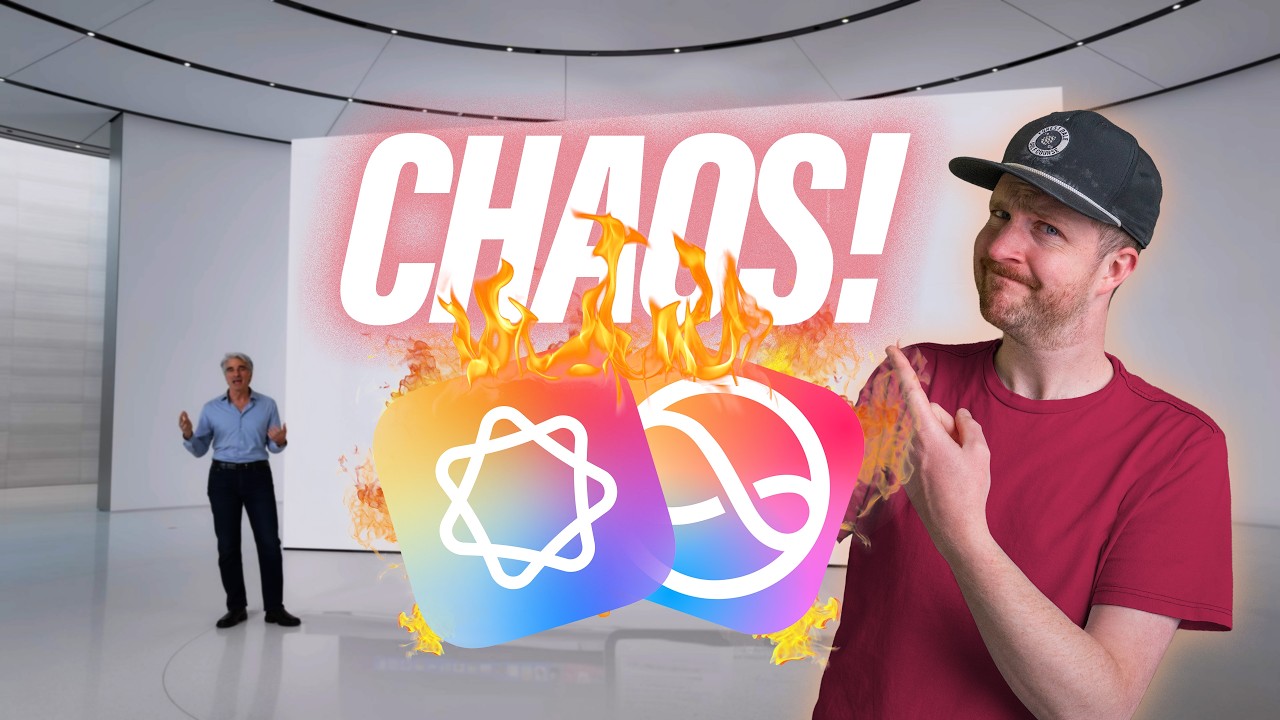Inside Apple’s AI Crisis: How Infighting and False Demos Led to a Major Lawsuit
Apple now faces a lawsuit over its Apple Intelligence rollout, but this isn’t just another corporate legal battle. Recent insider information reveals something far more troubling: internal executive conflicts and demonstrations at WWDC that weren’t running on actual working devices. These revelations don’t just impact Apple’s AI strategy—they potentially damage the company’s long-trusted reputation for honesty about upcoming products.
The Troubled History of Siri: A Decade of Dysfunction
To understand Apple’s current AI predicament, we need to examine Siri’s problematic journey from the beginning. Apple acquired Siri for $200 million in early 2010 under Steve Jobs’ direction. After Jobs’ passing in October 2011, Scott Forstall delegated Siri’s leadership to Richard Williamson while focusing on Apple Maps.
This decision proved disastrous. Williamson immediately clashed with the Siri team, implementing an unpopular annual update cycle tied to iOS releases. Despite internal attempts to correct course, both Forstall and Williamson were removed following the Apple Maps debacle in 2012.
Apple then brought in Bill Stasior from Amazon, hoping his search expertise would fix Siri. Instead, his vision clashed with the original AI direction, creating internal conflicts between established team members and newer acquisitions. This dysfunction drove away key talent in speech recognition and natural language processing.
By 2016, when Apple finally launched SiriKit for developers, Amazon and Google had already established commanding leads in the assistant market. The 2018 HomePod launch further exposed Siri’s stagnation, with reviews criticizing a voice assistant that had barely evolved since 2011.
The JG Era: High Hopes, Limited Results
Facing mounting criticism, Tim Cook made a bold move by poaching John Giannandrea (JG) from Google, where he had led search and AI. This high-profile hire reported directly to Cook, signaling Apple’s acknowledgment of its AI problem.
However, according to a bombshell report from The Information, JG’s leadership style proved problematic. While well-liked personally, he reportedly lacked decisiveness and operational effectiveness. Under JG and his operational head Robby Walker, Siri development moved at a glacial pace:
- Two years were spent just to remove “Hey” from “Hey Siri”
- Walker prioritized response speed over answer quality
- Promising innovations like emotion detection in Siri were reportedly dismissed
The dysfunction was so severe that JG’s AI/ML team earned the unflattering nickname “AIMLess” from Craig Federighi’s Software Engineering division.
Parallel AI Kingdoms: Apple’s Internal Power Struggle
As confidence in JG’s group diminished, Federighi—known for his effectiveness—took extraordinary measures. He established his own machine learning team called “Intelligent Systems” and hired hundreds of AI engineers, creating a parallel development track within Apple.
This unprecedented move highlighted the serious dysfunction between two senior executives who both reported directly to Tim Cook, a CEO famously reluctant to resolve conflicts between his leadership team.
When ChatGPT emerged in late 2022, JG reportedly dismissed these models, believing they wouldn’t offer significant user value. By the time Apple decided to compete, they were nearly a year behind competitors. Their initial models—cloud-based “Mighty Mouse” and on-device “Mini Mouse”—couldn’t match even OpenAI’s earliest public releases.
Strategy flip-flops further hampered progress. Leadership reportedly changed direction multiple times—first focusing on in-house models, then consolidating to a single large model, only to revert to multiple models months later. These constant shifts drove frustrated engineers out the door.
Cultural Clashes and Growing Resentment
Years of mistrust between JG’s and Federighi’s teams created a toxic environment. Engineers from the AI/ML division allegedly enjoyed higher pay, quicker promotions, longer vacations, and shorter workdays compared to the Software Engineering teams, who believed they were more effective despite having fewer perks.
The animosity grew so intense that one of JG’s deputies reportedly instructed engineers to meticulously document joint projects to prevent being scapegoated if they failed. This level of distrust made meaningful collaboration nearly impossible.
The WWDC Bombshell: Were the Demos Fake?
Perhaps the most shocking revelation connects directly to the lawsuit mentioned earlier: The Information alleges that Apple Intelligence demonstrations at WWDC 2024 were essentially fictitious. These impressive demos—showing advanced contextual awareness and personal intelligence—were reportedly not running on actual working devices.
Even more troubling, the demonstrations supposedly surprised members of the Siri team themselves, who had never seen working versions of the features shown on stage. If true, this represents a significant departure from Apple’s longstanding policy of only publicly demonstrating features that actually work internally.
New Leadership and Hope for Redemption
In response to these issues, Apple has reportedly removed Siri oversight from JG and Walker, placing Mike Rockwell in charge—a 10-year Apple veteran known for successfully leading the Vision Pro project from concept to completion.
Rockwell, a reported long-time internal critic of Siri, has brought key lieutenants from the Vision Pro team to help transform Apple’s assistant. The first weeks have allegedly already seen significant changes.
Encouragingly, Federighi remains involved and has reportedly instructed engineers to prioritize building the best AI features possible, even if that means using open-source models from other companies—a significant departure from Apple’s traditionally closed approach.
What This Means for Apple’s Future
This organizational chaos raises serious questions about Apple’s ability to innovate in today’s competitive landscape. While Tim Cook has proven himself an exceptional operational CEO, these revelations highlight the challenges of maintaining Apple’s standards without a product visionary like Jobs at the helm.
For the first time in recent memory, Apple isn’t just lagging behind competitors—it’s arguably delivering an inferior experience. The company that built its reputation on “not first, but best” now finds itself both late and struggling with quality.
The coming months will reveal whether Apple can overcome this crisis and restore confidence in its ability to deliver on the promise of Apple Intelligence. For a company built on perfectionism and trustworthiness, the stakes couldn’t be higher.
This post was generated automatically using LLM.
You can watch the full video from the link below.

